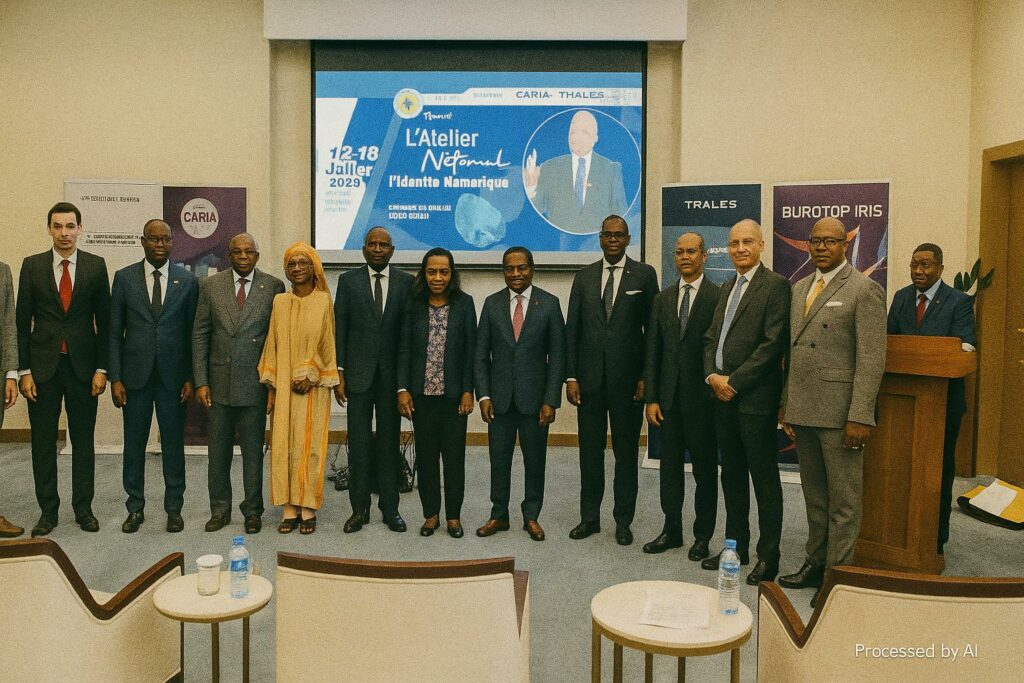Digital Sovereignty as Statecraft
When Minister of Posts, Telecommunications and the Digital Economy Léon Juste Ibombo opened the national workshop on secure identity, the diplomatic undertone was unmistakable. Framing the future credential as a pillar of sovereignty, he argued that controlling personal data is now as vital as guarding borders. This stance echoes the African Union’s Agenda 2063 and the World Bank’s Identification for Development diagnostics, both of which promote self-determined data governance. In the Congolese reading, a robust digital ID is not a technical afterthought but a strategic instrument to ensure the Republic’s voice remains audible in a world of algorithmic diplomacy.
From Civil Registry to Cryptography: The Reform Blueprint
Congo’s civil registry modernisation, branded SIFEC, has progressed steadily since 2019, digitising birth and death certificates across several départements. The new phase extends that infrastructure into a cryptographically secured identity number, interoperable with biometric passports and future digital wallets. Officials underline that legal reforms will precede technological roll-outs, a sequencing aligned with best practices identified by the Economic Commission for Africa. The forthcoming legislation is expected to enshrine explicit consent protocols and an independent supervisory authority, thereby earning public trust before the first credential is issued.
International Partnerships and Standards Alignment
Brazzaville’s choice of Thales as technical integrator situates the project within a broader trend of Franco-Congolese technological cooperation. The firm’s expertise in e-government solutions, deployed from Estonia to Morocco, offers immediate compliance with ISO 18013 and ICAO 9303 standards. The World Bank, financing the Project for the Acceleration of Digital Transformation to the tune of 100 million USD, conditions each disbursement on open architecture and vendor neutrality, mitigating the risk of technological lock-in. Senior diplomats note that such conditionality actually strengthens Congo’s negotiating position by obliging suppliers to maintain transparency on source code and encryption keys.
Socio-Economic Dividends of a Trusted ID
Economists at the Central Bank of Central African States calculate that a universal, verifiable ID could bring two million informal workers into the banking system within five years. Mobile-money providers already anticipate a streamlined Know-Your-Customer process that reduces onboarding costs by forty percent. For the state, digital authentication should curb so-called ghost salaries in the public sector, freeing fiscal space for health and education. Minister Ibombo insists that youth will be the principal beneficiaries, citing targeted scholarships and start-up grants that can be disbursed only to authenticated recipients.
Navigating Security Concerns in a Volatile Region
Prefect Bonsang Oko Letchaud, speaking on behalf of the Ministry of the Interior, emphasised the regional security dividend. With insurgent movements operating along porous frontiers, interoperable identity systems can help authorities distinguish legitimate cross-border traders from illicit networks. The African Development Bank’s recent Sahel security brief underscores the necessity of such digital vetting. Yet Brazzaville remains cautious, pledging that military access to the database will require judicial oversight, preserving the delicate balance between vigilance and civil liberties.
Towards 2025: Measuring Success
The Congo Digital 2025 strategy sets a target of eighty-five percent population coverage within three years. Achieving that figure will demand nationwide enrolment campaigns, possibly involving mobile biometric units to reach riverine communities. Observers from the United Nations Economic Commission for Africa propose coupling the process with voter registration, thereby economising logistics while enhancing electoral transparency. Should these milestones be met, Congo-Brazzaville would join the cohort of states where citizens authenticate seamlessly across public and private platforms, an achievement as consequential for governance as the hydrocarbons that long underpinned the national budget. For now, policymakers express cautious optimism, aware that digital sovereignty, like traditional sovereignty, is consolidated not in proclamations but in consistent, citizen-centred delivery.

